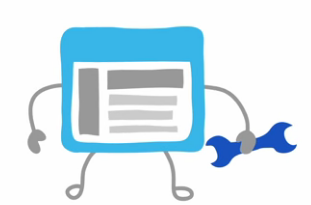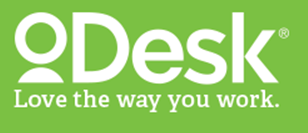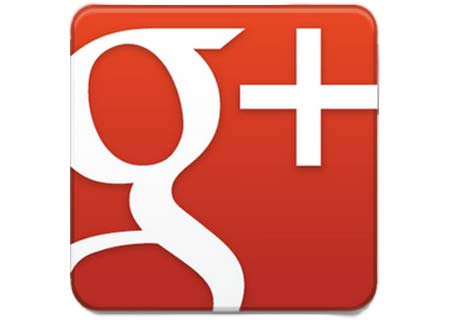5 SEO Insights From 3d Cart's Joe Palko

This is a guest post by Joe Palko, 3D Store Chief Marketing Officer. Joe has been working in ecommerce with Online Merchants since 1994, and has over 12 years of Business Development experience.

Google and the Bing are the two search engines that mean basically everything to every merchant and every website right now.
These companies are very different, as well as their Webmaster Tools.
If you just Google “Webmaster Tools” and you Google “Bing Webmaster Tools,” it’ll take you to the log-in page for Webmaster Tools. You’ll get a lot of information there as to what they’re about.
In Google’s Webmaster Tools Google is going to give you some insight as to how people are finding your website. It’s a little obscure in a sense. They don’t really give you tons of information, but they’ll tell you, for this particular keyword, last week, your average ranking was 16.2. You came up number 16 for the majority of the week. These are the keywords that people are using to find your website.
You don’t know who the people are who are finding your website or what types of customers you’re bringing in. But Google will give you a lot of information about how you are ranking in the search engine.

There’s also a place in there where you can say, “These are websites that I’ve found.” Google will give you a list of all the sites that it finds linking to you. So you can look through them all. There’s something called “disavow” which you can do in there. But I don’t really recommend doing a Disavow unless you speak to a professional, because you could really hurt your ranking.
If you find someone is maliciously linking to your website or you’ve got lots of links coming to your website that you don’t know what they’re for and you’ve made a good faith effort to contact the webmasters of these websites and say, “Hey, I don’t want you linking to me,” you build a file of URLs. And you tell Google, “These are really suspect URLs. I don’t know why they point to me. Don’t use them when calculating my ranking.”
Both Bing and Google do it, but differently. The interfaces are very different, but the concept is the same. And there’s also a place in Google where it’ll tell you if you’re suffering a penalty. So if you have seen your traffic decrease a lot over the past, say six months, and you don’t know what’s wrong and you enable Webmaster Tools, there’s a link in there where it’ll tell you if there’s an issue.
And you have the opportunity in Google specifically to ask Google. For example you can submit a request and say “Hey, it says I have a penalty and I don’t understand why. Can you provide me with more information?”
Content creation is pivotal for ecommerce and digital marketing.

If you want to do it yourself, say you’re pretty much an expert in your field, but you just don’t write well, in general, you could always look to possibly hiring an intern from your local university. Internships are quite easy to create because there’s a lot of people that actually go to college for writing and they need internships
In the past I’ve used oDesk, and similar products where you can interview and hire contract writers. oDesk is one that I’ve used personally. Elance is another one.
So say you want to have good blog content, but you just don’t have the ability to create this content. You can create a job on there. And people from all over the world will apply for the jobs. You’re hiring a contractor. You give them test projects. You determine what you’re going to pay them per hour. That’s one of the best ways to get content, especially if you’re not a good writer.
I also recommend Copyscape. It’s relatively cheap to run content through Copyscape. But if somebody were to write content for you, you’d want to put it in Copyscape, because what Copyscape will do is alert you whether it’s plagiarized or not. And the last thing you want to do is put plagiarized content on your website.
There’s no easy way to rank online. It’s a lot of work now. This is kind of a funny story, but when I started eCommerce back in 1994, we had Alta Vista and there were a couple rudimentary like HotBot, there was no Google.
It was so easy. I can remember one point, maybe it was like 1997, I had got a customer complaint. That was “Whenever I search the word ‘ferret’ in the search engines, you’re ranked number one through ten. That’s ridiculous.”
That’s never going to happen again. The competition is so fierce now. You have to either be very good at what you do, create a really good brand identity. In some way, engage your customers.
A lot of people think that they can just go to social media. And the biggest mistake I see is they open a Facebook account and then they start flooding it with ads. They start putting: “Look at this great pen we sell, it’s only $9.”
If people aren’t interested in this information, they just block it out. This is one of the reasons why guest blogging, if you do it correctly. Take for example, Huffington Post, it’s a news site, but Huffington Post is, in theory, just a really good blog. If you’re able to get an article onto Huffington Post, it gets read by hundreds of thousands of people. So, it’s about being good at what you do and putting the time into it and trying to build followers.
There are different levels of these penalties, right? One thing, you need to look at the penalty, specifically, because there are a couple of different ones, and some of them are more harsh than others. There’s one penalty that says: “Google has found inbound links to your website.” But Google is going to just not pay attention to those links to your website. But we know they’re there. And we know it may not be your fault that they’re there.
This is kind of like the precursor to a potentially bad penalty six months down the road. What Google is basically saying is that they think you’re up to no good, but there’s the possibility that it’s not your fault. So it’s not going to impact your ranking.
You have to really read the wording very carefully on that warning. That usually becomes followed by another warning that’s like: “Google has determined that you have really bad inbound links. And we’re pretty sure that it’s all your fault. That you’re really engaging in bad SEO.”
And this one, it really does affect your ranking. And what Google is really looking for is they don’t necessarily want every link removed. They’re trying to teach you a lesson. They know that you’ve done something that you shouldn’t have done. You’ve tried to game the system in some way, even if it wasn’t your fault. Even if you hired a company to do it and they did it and then six months later, you’ve now found out that they did really bad things. Google wants you to be very honest and tell them what you did. And they sort of use this penalty as a punishment.
And if they think that you’ve done a year of link building, they’re going to want you to do a year of link removal. So in terms of do you scrap the domain and move on? In theory, it’s possible, I mean if you’ve really put– Say you did two or three years of really bad SEO and you’ve got 20,000 link farms linking to you, you might be better off starting with a new domain. It’s a possibility. You really need an expert to look at it for you, though.

Despite recent news with Google+ potentially getting deleted, getting killed off, it’s still worth the time to invest in Google+ authorship.
I don’t think that Google+ as a whole, is going to be dismembered. They’re talking about it, right? But you’ve got to remember too, that Google+ can also function as your identity within Google. It’s like your profile.
So they may do away with the social sharing aspects. But they’re never going to do away with the fact that the Google account resides with the human being. So I think you may start to see maybe, they’re going to weed out the social capabilities of +. But chances are, if you have an Android phone or a Google profile, that’s going to be your home base, where your credit card is stored, all that stuff.
So I think that there’s always probably going to be a public facing profile, per se. You might just not be able to post to it. That’s my opinion. I don’t know. Nobody really knows where it’s going.
Nofollow codes make an difference on SEO. They make a big difference. What Google really expects from you is if you post an article about something. And you’re putting a link to a product or a link to a different website. And it seems as if that it’s not very core to what the article is about and you give it a nofollow link.
What you’re basically telling the search engines is when they find that link, don’t follow it back to the website that you’re linking to. So in theory, it’s like you’re putting the link there just so that the link is really valuable to the reader. But you’re not giving any of the benefit of your website’s content to anyone else.
Google looks at that as it’s relatively positive because they know you’re not putting this blog out there just to build SEO. The difference between follow and no-follow is just that. When the search engine finds the content, it won’t follow the link. So the search engine will just stay on indexing the content on your site.
